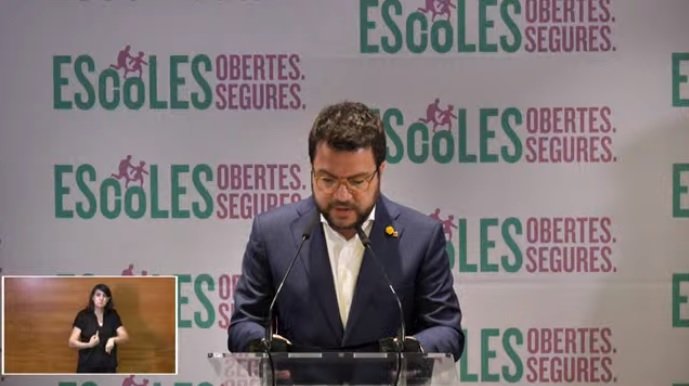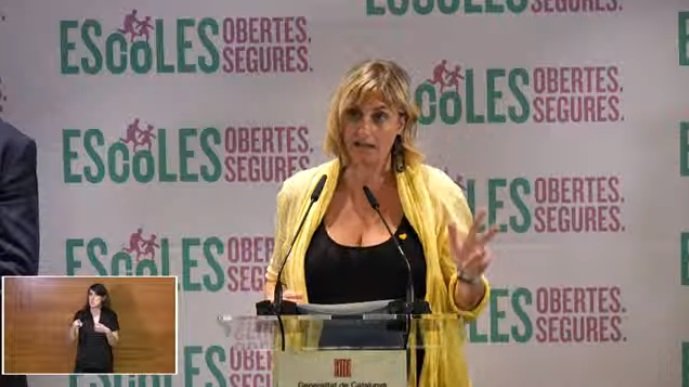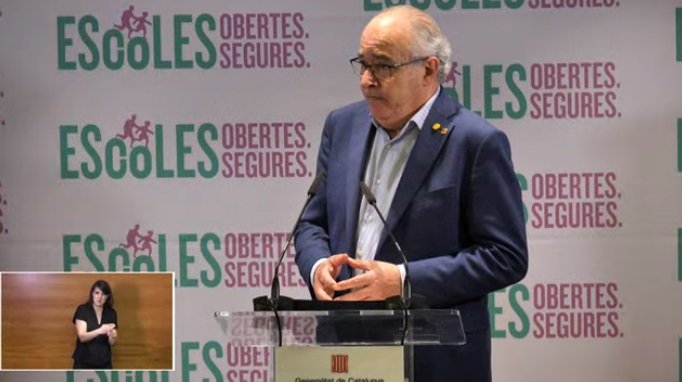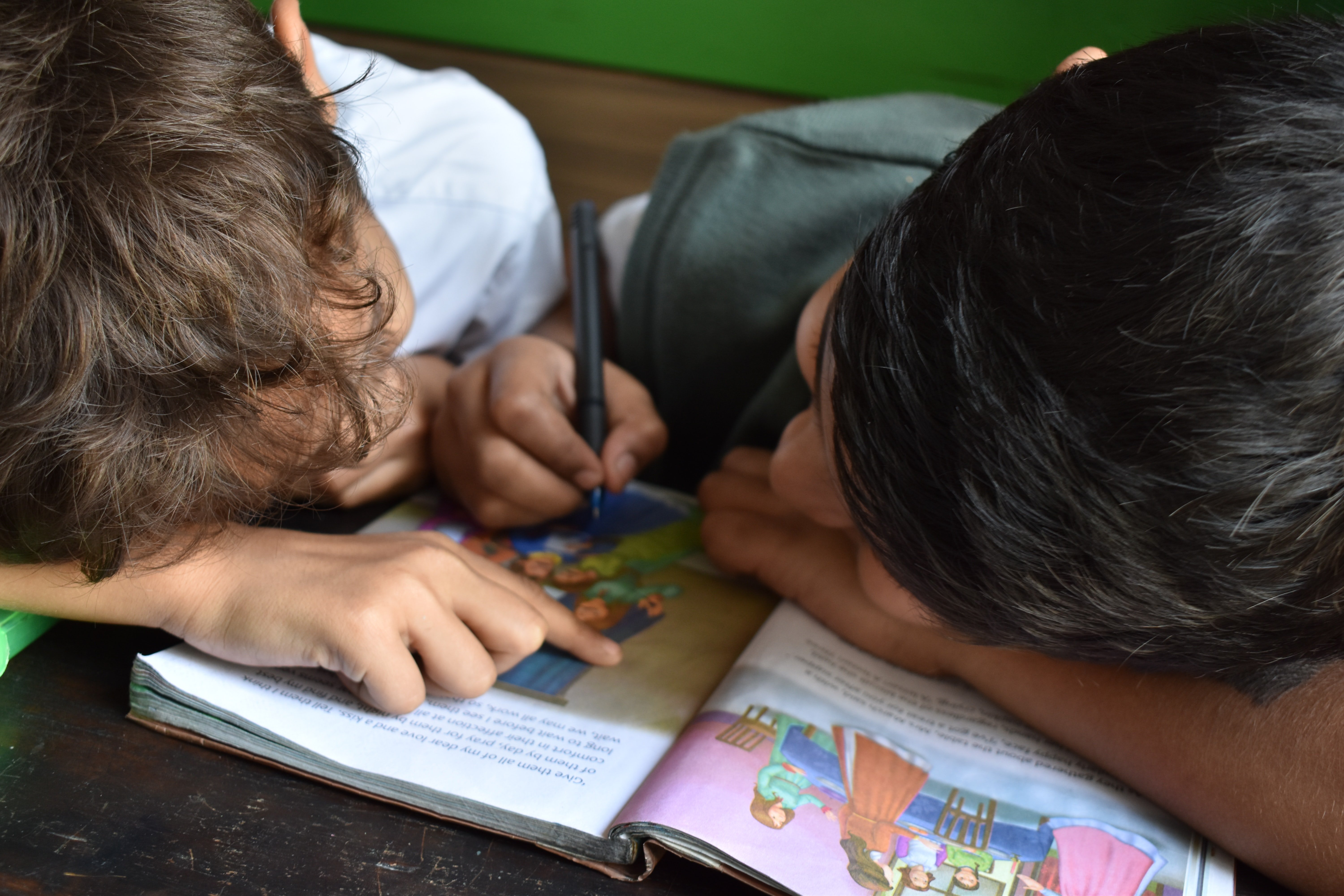The 2020-2021 school year in Catalonia "will get underway as normal." However, said Catalan vice president Pere Aragonès today, it will be an "exceptional" return to school because "we are in an educational emergency and we need to place students at the centre." Precisely for this reason, in a joint press conference with the Catalan ministers of education, Josep Bargalló, and health, Alba Vergés, the vice president announced that for the next academic year a special investment of 370 million euros will be made, with almost two-thirds of this - 233 million euros - to be used to incorporate extra teaching and non-teaching staff. In total, about 5,000 more professionals will be employed in Catalan schools.

Catalan vice president and economy minister, Pere Aragonès, during the press conference
To try to deal with possible new Covid-19 outbreaks and lockdowns, much of the rest of the package - about 103 million - will go to technology resources. The main goal is the transformation of schools.
Aragonés explained how schools have had to adapt in record time. "The public services were not ready to make a conversion in 24 hours." However, he remarked, "crises are also an opportunity." And although the technological investment was intended to be made progressively, the emergency situation has forced plans to change.
The three basic elements of the new school year
In turn, health minister Vergés outlined the plan for the new term, aiming to allow school to be "practically normal" based on three basic elements: good hygiene habits, organization of classes in "stable coexistence groups" and early detection of virus cases. Although the circulation of the virus within the community continues, the minister stressed that now, more is known about Covid-19.
She mentioned that "less than 1% of cases confirmed by PCR tests are among children under 15, and only 8% of cases are under 30." Therefore, "the viral load is lower than in adults", she said. "99% have mild cases or are asymptomatic."

Health minister Alba Vergés / Capture Youtube Educació
She stressed that closures of schools would have to be decided on information available at any given time. However, she asserted that closing the school gates only had "a minor impact on the course of the epidemic."
"Stable coexistence groups"
"For children, the school is their second family," said education minister Bargalló. In that regard, the worst thing that might have happened to children over recent months was the break with the school.
The creation of coexistence groups will allow children to go without a mask in class. "The unit of coexistence will always be the same. The same students and the same teachers who will all be able to have direct contact without a mask."

Education minister Josep Bargalló / Youtube Capture Educació
In the event that another teacher or specialist has to enter the class - someone who does not have daily contact with the group - protective measures will have to be taken, such as masks and safety distances.
What if a child has coronavirus?
One of the obvious concerns which parents have in relation to the coexistence groups is how they will respond to a hypothetical positive case within the unit. The health minister was frank: the whole group will have to go into quarantine.
She also stated that, in a situation of possible symptoms, families should not send their children to school. Now should they do so in cases where contact had been maintained with a possible coronavirus case.
The arrival of new professionals
According to the announcement made by the Catalan government, around 5,000 professionals, teachers and non-teachers, will be hired. These staff will join the school centres from September 1st, but schools will already know by the end of July how many new teachers they will be receiving next school year.
Negotiations with unions on conditions that teachers would have in the new term were to begin today, said Bargalló.

